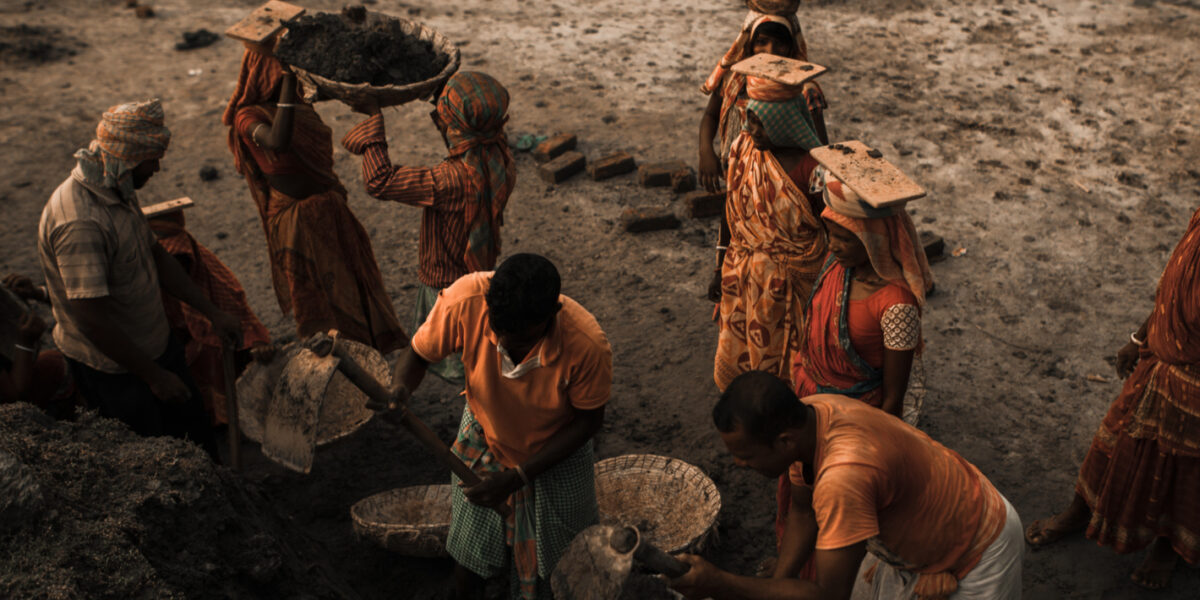
NGOCSTIP – Root causes of human trafficking in Africa are deeply intertwined with socio-economic and political issues. These factors create an environment where exploitation thrives. Poverty, lack of education, and limited employment opportunities push individuals into vulnerable situations. Traffickers take advantage of these vulnerabilities, offering false promises of a better life. In regions with weak governance and corruption, human trafficking often flourishes.
One of the main causes of human trafficking in Africa is poverty. In many African countries, poverty leaves individuals vulnerable to exploitation. Families facing financial struggles often look for ways to support themselves. Traffickers take advantage of these desperate situations. They promise better opportunities, such as jobs or education, and deceive victims into slavery.
Moreover, unemployment rates across many African nations are high. Lack of job opportunities makes individuals susceptible to traffickers who offer false hope. In such an environment, people are desperate to escape hardship. Economic inequality also plays a significant role in increasing vulnerability to trafficking. Without economic stability, individuals struggle to protect themselves from exploitation.
“Read about: Jasmin’s Journey: From Victim to Advocate Against Human Trafficking”
Gender inequality further exacerbates the issue of human trafficking in Africa. Women and girls are particularly vulnerable to being trafficked. Traditional gender roles limit their access to education, resources, and opportunities. As a result, they are more likely to be manipulated and coerced into trafficking situations.
Sex trafficking is a common form of exploitation in the region. Many young women and girls are trafficked for the purpose of forced labor and sexual exploitation. They often fall prey to traffickers who prey on their hopes for a better life. Additionally, gender-based violence and discrimination contribute to the marginalization of women, increasing their vulnerability.
Limited access to education and a lack of awareness are also major factors. Many African children, especially in rural areas, do not have access to education. This lack of education makes them easy targets for traffickers. Traffickers often promise a better future through education or employment. When individuals don’t know their rights, they are at greater risk of being trafficked.
Education is a key tool in preventing human trafficking. It empowers individuals to recognize and resist exploitation. Educating both children and adults about the dangers of trafficking can help reduce the number of victims. However, many communities still lack the necessary resources to provide proper education.
“Read more: Rhinosinusitis in Children: Causes, Symptoms, and Treatments”
Another significant cause of human trafficking in Africa is the lack of strong legal frameworks and enforcement. Many countries have laws against human trafficking, but enforcement is weak. Corruption, lack of resources, and political instability hinder effective action. Traffickers operate with little fear of being caught or punished.
To address this issue, stronger legal frameworks are necessary. Governments must improve laws related to trafficking and ensure they are enforced. International cooperation is also critical in holding traffickers accountable. By strengthening legal frameworks, African nations can better combat human trafficking.
Conflicts and displacement contribute to the rising rates of human trafficking in Africa. Wars, civil unrest, and natural disasters force millions of people to flee their homes. Refugees and internally displaced persons are particularly vulnerable to trafficking. Traffickers often prey on people who have lost their homes and are in desperate need of safety and shelter.
In conflict zones, traffickers often abduct children and women. These individuals are then sold into forced labor or sexual exploitation. The absence of proper infrastructure to protect displaced populations makes them easy targets. Furthermore, the lack of resources and support exacerbates their vulnerability. Therefore, addressing the root causes of conflict and displacement is essential for tackling human trafficking effectively. Additionally, international cooperation plays a crucial role in preventing exploitation. Addressing these issues can reduce trafficking and provide better protection for vulnerable groups.
Certain cultural norms and practices also contribute to the trafficking crisis in Africa. In some areas, traditional practices such as early marriage and child labor are widespread. These practices expose vulnerable individuals to exploitation and trafficking. Some communities do not recognize trafficking as a serious issue, perpetuating the cycle of abuse.
Changing cultural attitudes towards these practices is crucial. Awareness campaigns can help challenge harmful cultural norms and promote human rights. Community leaders and activists play an important role in addressing these cultural issues.
To address the root causes of human trafficking in Africa, a multi-faceted approach is required. This approach should focus on tackling poverty, gender inequality, and lack of education. Additionally, stronger legal frameworks, conflict resolution, and cultural change are essential components of the solution. By addressing these root causes, African nations can reduce human trafficking and protect vulnerable individuals from exploitation.